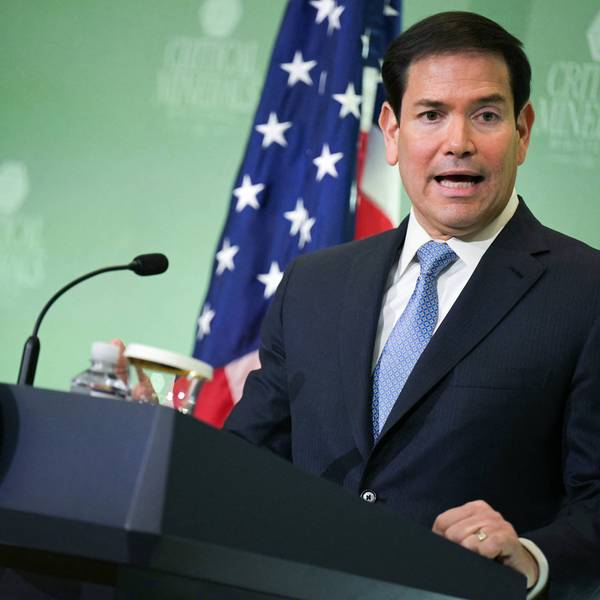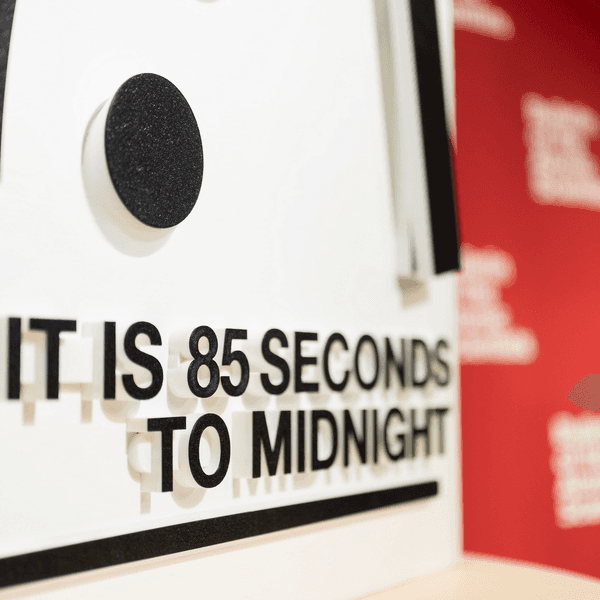As dozens of world leaders convene in Washington, DC for the fourth and likely final Nuclear Security Summit, one advocacy group is saying the focus must be the urgency of "bold action" to eliminate the world's nuclear weapons.
The summit convened by President Barack Obama is part of efforts he laid out in a 2009 speech in Prague. Obama himself referenced that speech in an op-ed at the Washington Post on Wednesday, writing that seven years ago he "committed the United States to stopping the spread of nuclear weapons and to seeking a world without them."
And there has been some progress during those years. Yet, as Joe Cirincione, president of Ploughshares Fund writes, the accomplishments "fall short of the policy transformation Obama sought."
"Obama hoped that by now he would have secured Senate approval of the nuclear test ban treaty, which he promised to 'immediately and aggressively pursue.' Didn't happen." Cirincione adds that Obama also "intended to negotiate with Russia truly deep cuts in both arsenals and then 'include all nuclear weapon states in this endeavor.' Russia refused."
Obama wrote in his op-ed: "Along with our military leadership, I continue to believe that our massive Cold War nuclear arsenal is poorly suited to today's threats. The United States and Russia -- which together hold more than 90 percent of the world's nuclear weapons -- should negotiate to reduce our stockpiles further."
As Vox notes, American and Russian
disarmament happens jointly, in painstakingly negotiated agreements, which also include painstakingly negotiated inspections and monitoring regimes to make sure the other side is holding to their end. That is extremely difficult and time-consuming even in periods of relative friendliness between Moscow and Washington. But in periods of tension -- right now, for example -- the distrust is just too high, and the domestic politics within both countries make such agreements too politically costly anyway.
The upshot of all this is that we're left, more or less perpetually, in a Cold War-era status quo, in which both the US and Russia have enough nuclear weapons to destroy the world many times over, have nuclear war plans that require doing exactly that, and have forward-deployed those warheads in a way that is meant to deter the other side but also substantially increases the risk of unintended conflict by reducing our response time to mere minutes.
Russia isn't even attending the summit, citing "a shortage of mutual cooperation."
At any rate, as NBC News reports, this year, "the gathering of more than 50 world leaders will focus primarily on keeping terrorists from obtaining the ingredients for a dirty bomb."
RT's Thom Hartmann asked Kevin Kamps, Radioactive Waste Watchdog with advocacy group Beyond Nuclear on Thursday why there would be "little discussion about nuclear power and nuclear weapons themselves" at the summit.
"I think the Obama administration is comfortable with the status quo with nuclear weapons for the most part, it's very comfortable with the status quo with nuclear power, so this conference is merely focused on locking down highly enriched uranium and weapons-grade plutonium materials," Kamps said. "Its priorities are completely messed up," he added.
Global Zero, a international movement that advocates for the elimination of all nuclear weapons, took to Twitter to respond to Obama's op-ed and to say where they believe the focus of the summit should be:
The group also created a petition to tell summit participants, "There can be no such thing as 'nuclear security' so long as nuclear weapons exist."
"The use of even one would be a global humanitarian, environmental and economic catastrophe. We must not wait for the inevitable before we act," the petition states.



